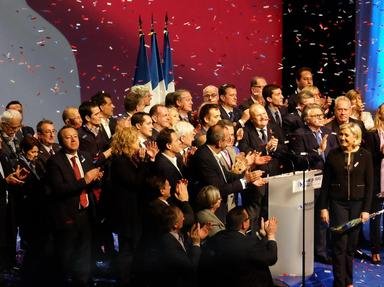Quiz Answer Key and Fun Facts
1. Democrat Eugene McCarthy stunned the nation by winning the New Hampshire primary over incumbent Lyndon Johnson.
2. After McCarthy's showing in New Hampshire, who was the next Democrat to announce he would run against incumbent Johnson?
3. When Lyndon Johnson made his surprise announcement that he would not seek re-election, that was not the main topic of his televised address to the nation. What was?
4. Which of these men was not a candidate for the Republican presidential nomination?
5. After Johnson announced he would not seek re-election, who was the next Democrat to enter the fray?
6. Until he was assassinated, Robert Kennedy appeared to be on his way to the Democratic nomination after winning the ______ primary?
7. Of the Republicans who announced that they were seeking the presidential nomination, who was the first to drop out of the race?
8. While making a speech at the Democratic Convention, Senator ________ was shouted at by Chicago mayor Richard Daley when he criticized the Chicago police for using "gestapo tactics" in dealing with anti-war demonstrators?
9. Who was Hubert Humphrey's running mate in the 1968 election?
10. Who was Richard Nixon's running mate?
11. Alabama governor George Wallace ran as a 3rd party candidate. Who was his running mate?
12. How many states did Wallace win in the Presidential Election?
13. Nixon became the first man since Woodrow Wilson in 1916 to win a Presidential election despite losing his home state (California).
14. Humphrey trailed Nixon badly in the polls in September, but slowly gained ground. In late October, he received an endorsement from ______ (and soon thereafter, the race was declared "too close to call" by pollsters)?
15. Nationally, Nixon received how many more popular votes than Humphrey?
Source: Author
81gaucho
This quiz was reviewed by FunTrivia editor
gtho4 before going online.
Any errors found in FunTrivia content are routinely corrected through our feedback system.

